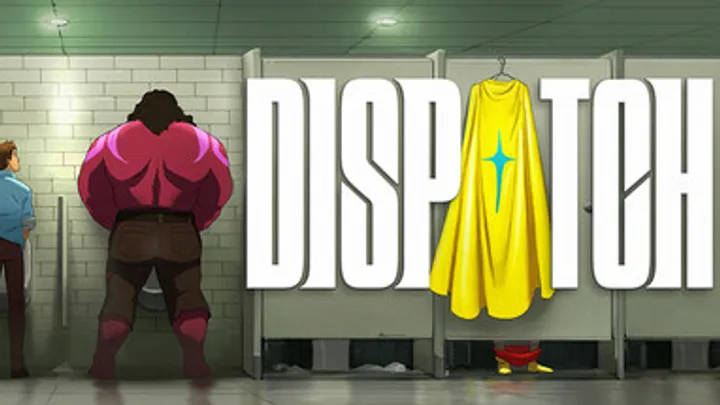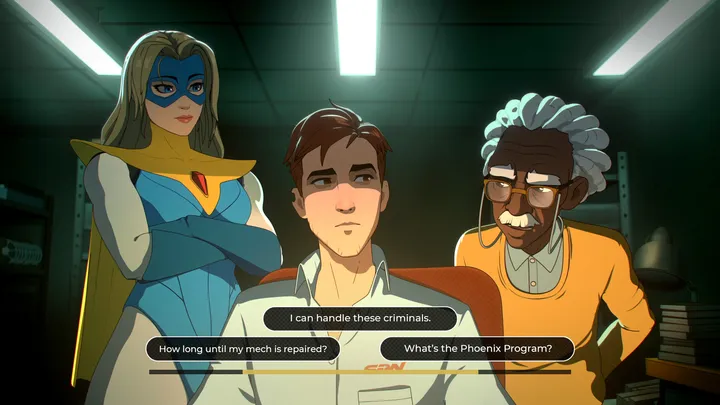Dispatch is a first-person emergency-response thriller where you manage calls, make choices, and control the fate of civilians through voice-driven decisions. Every case requires precise judgment, emotional intelligence, and fast reaction. Unlike action titles, Dispatch tests your ability to analyze clues, read tone, and select the safest and most effective response.
This guide covers principles, advanced decision-making, caller psychology, risk assessment, and long-term habits to help you interpret calls, choose answers smartly, and avoid fatal mistakes.
1. Understand the Core Decision System
Dispatch revolves around choices. Each call contains branching paths that lead to safe outcomes, escalations, or failures.
Decision Priorities
- Identify threat level
- Understand caller state
- Guide calmly and professionally
- Provide police, medical, or safety instructions
- Avoid emotional reactions
What Players Often Miss
Small details in the background, changes in tone, and hesitations often hide clues. Avoid skipping lines or rushing responses.

2. Analyze Tone and Speech Patterns
Callers rarely say everything clearly. Tone changes reveal fear, lying, stress, or urgency.
Key Indicators
- Sudden silence: possible danger nearby
- Fast speech: panic or depression
- Hesitation: truth is being hidden
- Background noise: identify environment
Listening Tips
Stay quiet before answering. Let the caller finish. You often hear key details right before they speak.
3. Prioritize Life Before Rules
Many calls challenge ethics versus protocol. Your job isn’t to punish — it’s to protect.
Good Priorities
- Save the caller
- Protect nearby civilians
- Prevent escalation
- Calm the environment
Risk Assessment
If the caller is in immediate danger, skip long questions. Act decisively.
4. Control the Conversation
You must take charge. Passive listening leads to chaos.
How to Maintain Control
- Ask direct questions
- Give one instruction at a time
- Repeat critical steps slowly
- Keep the caller engaged
Avoid
Letting the caller ramble. People under stress talk inconsistently. Redirect them when needed.

5. Handle High-Risk Situations Calmly
Dispatch includes cases like home invasions, stalking, kidnapping, overdose, or suicide risk.
General Guidelines
- Lower your voice to encourage calm
- Avoid triggering words (e.g., “calm down”)
- Acknowledge their fear
- Give physical steps they can follow
Example Responses
Instead of saying “Stay calm,” say:
“I’m here with you. Listen carefully.”
6. Use Background Audio as a Clue System
You’re not only listening to the caller — you're analyzing their environment.
Listen For
- Footsteps
- Doors opening
- Traffic
- Objects falling
- Breathing changes
- Static or muffling
These cues help you determine whether danger is approaching, someone is nearby, or the caller is moving.
7. Know When to Escalate the Situation
Some calls require immediate emergency response; others need guidance instead of action.
Escalate When
- Caller is injured
- A crime is ongoing
- The suspect is still present
- The caller is losing consciousness
- There's a fire or hazardous environment
Do Not Escalate When
- The caller is prank-calling
- There is no immediate danger
- Information is unreliable
8. Stay Emotionally Neutral
Dispatch tests your emotional stability as much as your decision skills.
Professional Habits
- Don’t mirror panic
- Don’t raise your voice
- Avoid assumptions
- Keep your sentences short and clear
Psychological Impact
High-stress calls influence later decisions. Reset your mental state after each one so frustration doesn’t affect performance.
9. Manage Time Wisely
Some cases require speed; others reward patience.
Fast-Action Calls
- Criminal confrontations
- Medical emergencies
- Fires
- Break-ins
Focus on short instructions: “Run. Hide. Lock the door.”
Slow-Action Calls
- Emotional distress
- Uncertain danger
- Lost callers
Here, letting them talk buys time and reveals real threats.

10. Review Your Mistakes to Improve
Dispatch has multiple endings and consequences. Learning requires reflection.
After Each Call
- Ask: what clue did I miss?
- Review tone, noise, and decision flow
- Note which responses escalated danger
- Track patterns in caller behavior
Growth Mindset
You’ll get better at predicting outcomes, spotting lies, and recognizing danger quickly. Over time, your response instincts sharpen dramatically.
Conclusion
Dispatch is less about action and more about mastering human communication under pressure. Every caller is unique, and success comes from reading subtle clues, staying calm, choosing the right questions, and controlling the situation. With practice, you’ll become more intuitive, faster, and better at saving lives.

















